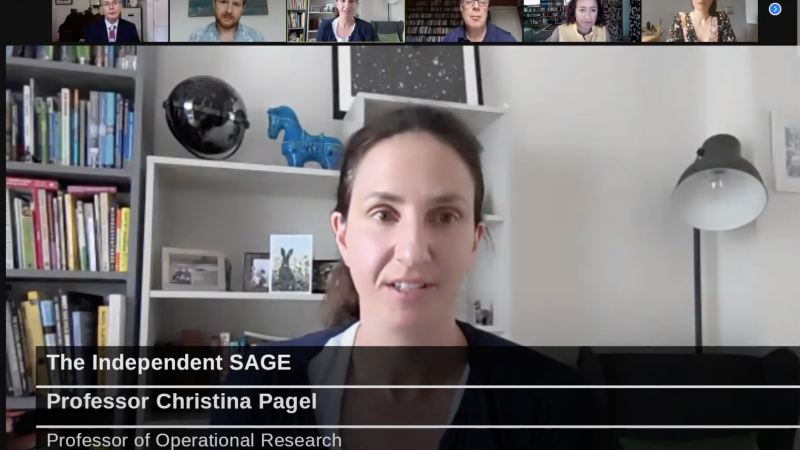Professor Christina Pagel said the reduction is probably caused by a number of other factors.

Covid cases in the UK have dropped since July 19th, prompting some people to speculate whether the country has reached herd immunity.
But at an Independent Sage briefing on Friday, Professor Christina Pagel said the evidence didn’t support this conclusion.
She said: “We probably need at least 85% of the population to be immune and we’re just not there.
“It’s somewhere between 55% and 65% that are fully vaccinated, plus maybe another 15% or 20% who have had Covid. But that’s not getting you to 85%.”
She added that the herd immunity would lead to a more gradual decrease in cases that the drop that we’ve seen in the last few weeks, saying: “If it was herd immunity, if we’d reached this threshold where that on it’s own could dampen things down, what you would see is a more gradual stop as more people get immune.
“You wouldn’t see a massive spike and a massive drop off and you wouldn’t expect to see it in all places at the same time.”
Professor Pagel said that the reduction is probably caused by a number of factors, including schools breaking up for summer, the end of the Euros, and people remaining cautious in their behaviour.
Data from the Department of Education showed in the last week of term over a million pupils were absent from primary and secondary school.
Professor Pagel said: “That is going to start having an impact on transmission in schools.
“It is going to be breaking the link between a lot of transmissions and that will be having an impact on slowing growth in those age groups.”
Once the term ended, children also stopped doing lateral flow tests.
Professor Pagel said: “There’s this impact of isolation, but they’re also doing fewer tests and that’s going to bring the reported cases for this age group down quite a lot.”
Football is also thought to have contributed to the rise in cases, and then once it ended, to the fall.
For the whole of the pandemic up to June, women in all age groups had more cases than men. This is due to women taking more tests than men.
In June, cases in men aged 20 to 39 overtook women for the first time.
Professor Pagel said: “I think what we’re seeing is a massive spike associated probably with the football.”
After the final on July 11, fewer people would have gathered together, leading to lower transmissions.
Another factor is behaviour. Data from the ONS showed that despite restrictions lifting, people continued to be cautious.
Between July 21st to 25th, a high proportion of adults felt that compliance measures to slow the spread of the Covid were either very important or important.
Over the same period, 95% of adults reported that they wore face coverings when outside and 61% adults always or often maintained social distancing.
The number of tests being taken has also fallen in the last few weeks.
Professor Pagel said: “There’s been a lot of coverage of the “pingdemic”, a lot of coverage of everything being open so it could be that people want to go on holiday, or they want to go and see their friends.
“There’s a lot of incentive not to test positive, so people with mild or ambiguous symptoms like hay fever or a cold are unwilling to come forward to get tested.”
Alexandra Warren is a freelance journalist.
Left Foot Forward doesn't have the backing of big business or billionaires. We rely on the kind and generous support of ordinary people like you.
You can support hard-hitting journalism that holds the right to account, provides a forum for debate among progressives, and covers the stories the rest of the media ignore. Donate today.



